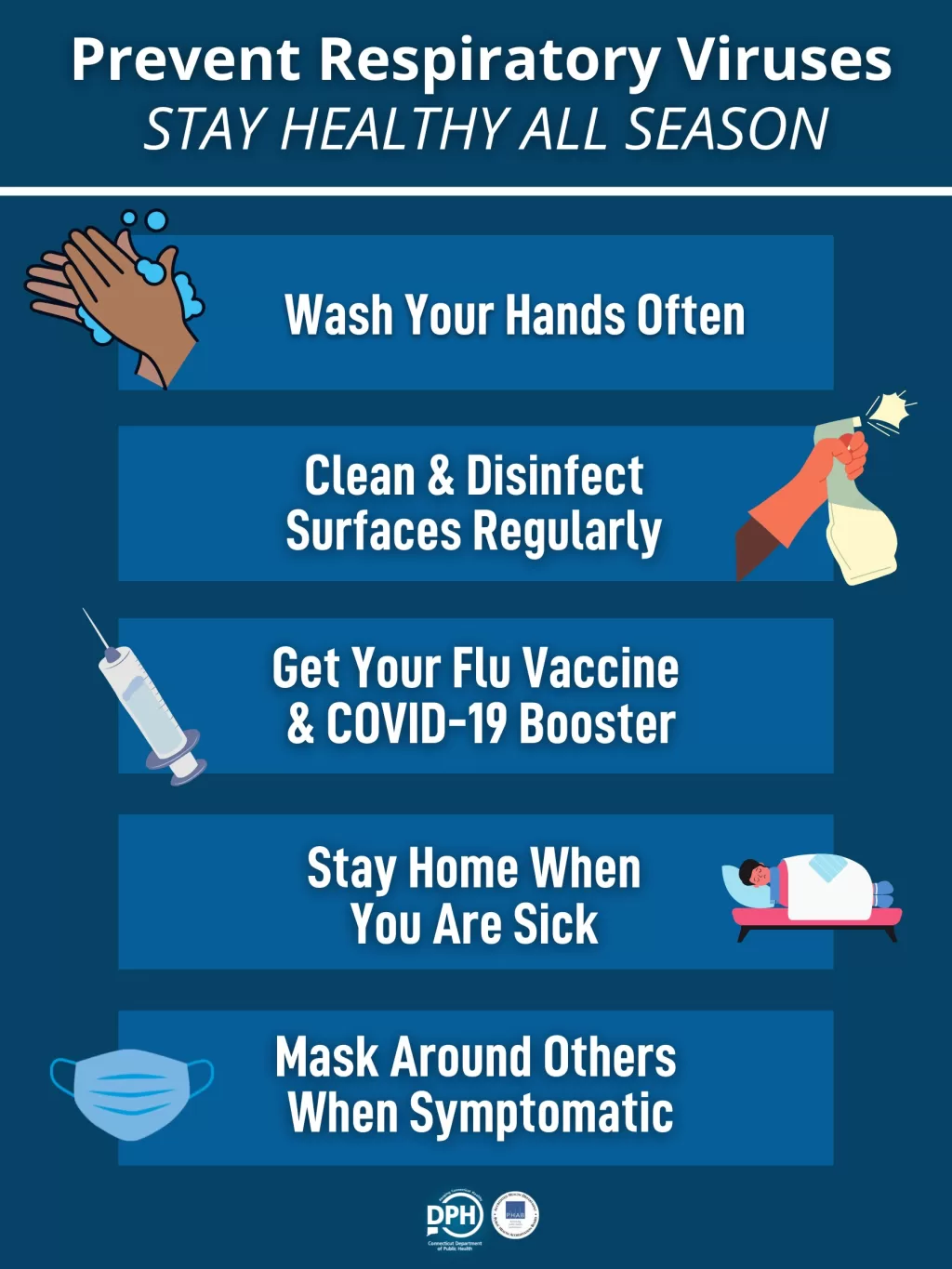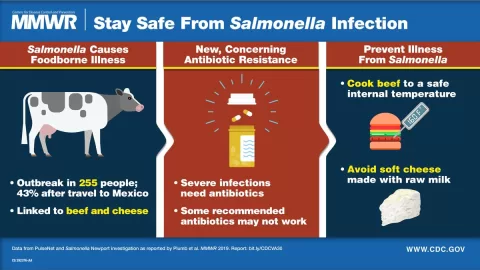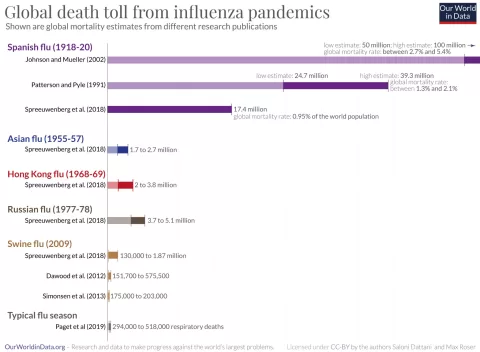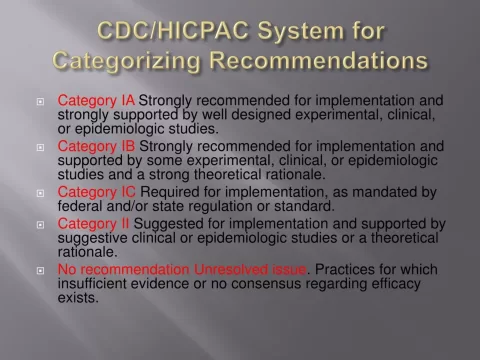The benefits of RSV vaccination are becoming increasingly clear, especially highlighted in the latest infectious disease trends report by the UK’s Health Security Agency. This vaccination has been shown to significantly reduce hospitalization rates among vulnerable populations, particularly seniors and pregnant women. With a notable 30% decrease in RSV-related hospital admissions, the RSV vaccine impact is a crucial factor in easing the pressure on healthcare systems during peak respiratory seasons. Additionally, the report indicates that the vaccine’s implementation has played a vital role amidst concerns about concurrent infectious diseases, which account for a substantial portion of hospital occupancy. As we continue to navigate the aftermath of COVID-19 vaccination and its influence on public health, understanding the effectiveness of RSV vaccination becomes essential for future strategies in combating respiratory viruses.
Exploring the advantages of the RSV shot reveals a compelling narrative surrounding respiratory syncytial virus prevention. As healthcare officials analyze epidemic patterns, the positive effects of this immunization are clearly linked to lower rates of severe illness, particularly among at-risk groups. The significance of the RSV inoculation extends beyond just individual protection; it also alleviates broader health system burdens by minimizing emergency room visits and hospital stays. As the UK health report illustrates, enhancing vaccine coverage is pivotal in addressing rising hospitalization trends due to infectious diseases. Thus, increasing awareness of these alternative vaccination strategies is vital in promoting community health and safeguarding populations against emerging respiratory threats.
The Importance of RSV Vaccination in Combating Infectious Diseases
The recent trends in infectious diseases highlight the critical role of RSV vaccination, particularly among vulnerable populations. The UK Health Security Agency’s report emphasizes that vaccination efforts have significantly impacted hospital admission rates, especially among the elderly. By implementing targeted RSV vaccination programs for seniors and pregnant women, the healthcare system has observed a remarkable 30% decrease in RSV-related hospitalizations among individuals aged 75 to 79. This substantial decline showcases the vaccination’s effectiveness in curtailing the spread of this respiratory syncytial virus, which has historically burdened health services during winter months.
Moreover, the RSV vaccination initiative aligns with broader public health goals aimed at reducing overall hospitalization rates attributed to infectious diseases. With the UK facing an increase in various infectious diseases—partly due to the resurgence of social interactions post-pandemic—the timely rollout of the RSV vaccine has been a beacon of hope. Health officials maintain that continued investment in vaccination strategies is paramount in sustaining these positive outcomes and preventing potential outbreaks, thereby ensuring the elderly population remains protected.
The Impact of COVID-19 Vaccination on Hospitalization Rates
The ongoing COVID-19 pandemic has significantly reshaped vaccination strategies across the globe, including the UK. The Health Security Agency noted that while other infectious diseases saw a resurgence, the effectiveness of the COVID-19 vaccine in reducing hospitalization rates is noteworthy. With reported effectiveness around 45% against hospitalization, the COVID-19 vaccine has served as a crucial tool in minimizing strain on health services. Especially among older adults, who are at a higher risk, ensuring high vaccine coverage is essential.
As countries navigate the fluctuating landscape of infectious diseases, the combination of COVID-19 vaccinations and RSV vaccinations plays a pivotal role in maintaining public health. The data suggests that ongoing efforts to vaccinate priority groups, including the elderly, can significantly mitigate the severity of these diseases. Understanding the relationship between vaccine uptake and hospitalization rates is vital for public health strategies, especially in light of the rising trends in diseases like measles and tuberculosis.
Analyzing the Trends in Infectious Diseases
The annual report by the UK Health Security Agency offers an alarming overview of infectious disease trends, showcasing how pre-existing conditions have exacerbated the situation post-pandemic. Notably, the report indicates an overall increase in infectious disease incidence, which correlates with a return to normalcy in social and travel activities. This resurgence presents a unique challenge as health authorities must address both new infections and those previously controlled through vaccination, illustrating the importance of maintaining high vaccination coverage for various diseases.
Additionally, the report’s findings on tuberculosis and measles indicate a troubling shift that could hinder the UK’s low-incidence status. The 11% rise in tuberculosis and outbreaks of measles among young children highlight a critical need for comprehensive vaccination strategies. Disease patterns are shifting rapidly, and public health initiatives must adapt accordingly to ensure that vaccination campaigns are resilient and robust, addressing not only RSV but also the spectrum of infectious diseases threatening public health.
Economic Implications of Infectious Disease Management
The financial repercussions of managing infectious diseases present a compelling case for the value of vaccination programs. Citing an annual cost of £6 billion ($7.7 billion) associated with infectious diseases in the UK, the report stresses that strategic vaccination efforts, including RSV and COVID-19 vaccines, are essential not only for public health preservation but also for economic protection. By reducing hospitalizations, these vaccines can help alleviate the financial burden on health services and the overall economy, enabling resources to be better allocated.
In addition, the effectiveness of such vaccinations plays a crucial role in decreasing emergency healthcare costs associated with severe cases. The benefits of proactive vaccination programs can help offset the economic impact of rising prices in hospital care, especially amid the increase in hospital bed occupancy stemming from infectious diseases. Hence, investing in vaccines represents a long-term economic strategy that supports both health outcomes and financial stability.
Addressing Vaccine Hesitancy in the Context of Infectious Diseases
As vaccination campaigns expand in response to rising infectious diseases, tackling vaccine hesitancy has emerged as a significant challenge. The UK Health Security Agency’s report underscores the need for continuous education and outreach to ensure that the elderly and other priority groups understand the critical benefits of vaccinations like those for RSV and COVID-19. By addressing concerns and misinformation surrounding vaccines, health officials can improve uptake rates, which are paramount for achieving widespread immunity and ultimately reducing hospitalization rates.
Furthermore, effective communication strategies are crucial to fostering trust between healthcare providers and communities, especially in the aftermath of the COVID-19 pandemic. As people seek information about the safety and efficacy of vaccines, clear messaging can alleviate fears and build confidence in vaccination programs. By securing high vaccine coverage, health systems can better protect vulnerable populations and mitigate the risks associated with infectious disease outbreaks.
The Role of Health Agencies in Disease Prevention
Health agencies, such as the UK Health Security Agency, play a pivotal role in monitoring disease trends and implementing preventive strategies. Their reports serve as essential resources for understanding the dynamics of infectious diseases, allowing for timely responses that include vaccination campaigns. The proactive stance taken by health officials after identifying rising trends in diseases like RSV underscores the importance of targeted interventions that safeguard public health.
In addition to vaccination efforts, health agencies are responsible for promoting awareness around other preventive measures. By educating the public on hygiene practices and the importance of early medical intervention, they can significantly reduce the transmission rates of infectious diseases. As seen with the ongoing challenges of COVID-19 and the resurgence of an array of infectious diseases, the collaboration between health agencies and the community is crucial to safeguarding public health and preventing the strain of healthcare systems.
Future Projections for RSV and Other Infectious Diseases
Looking ahead, the projections regarding infectious diseases underscore a pressing need for continuous vaccination efforts. The UK Health Security Agency has raised alarms about a projected 13% increase in tuberculosis cases, highlighting both the unpredictability of infectious diseases and the necessity for vigilant public health strategies. Ensuring the sustainability of RSV vaccination programs is crucial to maintaining the progress already made in healthcare and reducing the potential for resurgence.
Moreover, as emerging infectious diseases continue to pose threats globally, the ongoing evaluation of vaccination responses remains vital. Collaboration between researchers, healthcare officials, and the public will be instrumental in developing effective strategies that not only address RSV but also adapt to changing circumstances surrounding other infectious diseases. Establishing a robust framework for monitoring and response will ensure the UK’s health system remains resilient in the face of future challenges.
Integrating Vaccination into Public Health Policy
Integrating vaccination initiatives into broader public health policy is essential for combating infectious diseases effectively. The findings of the UK Health Security Agency highlight a correlation between increased vaccination rates and decreased hospitalization rates, underscoring how vaccine policy must be prioritized in public health agendas. As health authorities develop policies that include the promotion of RSV vaccination, they also address broader issues of infectious disease management and prevention.
Additionally, public health policies need to consider the social determinants of health that contribute to vaccine accessibility and uptake. By creating equitable systems that ensure all populations can access vaccinations, the government can foster community resilience against infectious diseases. Thus, a comprehensive public health policy framework that prioritizes vaccination can significantly enhance the community’s health outcomes and reduce the burden of infectious diseases on the healthcare system.
Frequently Asked Questions
What are the benefits of RSV vaccination according to the latest UK health report?
The UK Health Security Agency’s recent report highlights significant benefits of RSV vaccination, including a 30% reduction in RSV-related hospitalizations among seniors aged 75 to 79. This demonstrates the vaccine’s effectiveness in alleviating healthcare pressure during peak RSV seasons, ultimately contributing to lower hospitalization rates.
How does RSV vaccination impact hospitalization rates for respiratory infections?
RSV vaccination has a direct positive impact on hospitalization rates for respiratory infections. The UK health report indicates that with the introduction of the RSV vaccine, there has been a marked decrease in hospitalizations, particularly in older adults who are at higher risk of severe illness. This reduction is critical in managing healthcare resources effectively.
What trends in infectious diseases are linked to RSV vaccination benefits?
The infectious disease trends report showcases that the RSV vaccination has played a pivotal role in addressing the rise of vaccine-preventable diseases. By reducing RSV-related hospitalizations, the vaccination mitigates the overall burden of infectious diseases, which accounted for 20% of hospital bed occupancy in the UK.
Is RSV vaccination essential for seniors given the current trends in infectious diseases?
Yes, RSV vaccination is essential for seniors, especially in light of current trends in infectious diseases, as highlighted in the UK HSA report. With the resurgence of infectious diseases and increased hospitalization rates, vaccinating older adults helps prevent severe illness and contributes to overall public health safety.
How does the RSV vaccine compare to COVID-19 vaccination in terms of protecting vulnerable populations?
While both RSV and COVID-19 vaccinations aim to protect vulnerable populations, they serve different infectious threats. The RSV vaccine has shown a 30% reduction in hospitalizations for older adults, while COVID-19 vaccination offers approximately 45% effectiveness against hospitalization. Both vaccines are vital in preventing severe diseases and ensuring the safety of prioritized groups.
| Key Point | Details |
|---|---|
| Infectious Disease Impact | 20% of hospital bed occupancy; annual cost of £6 billion ($7.7 billion). |
| Trends in Infectious Diseases | Increased incidence of endemic and vaccine-preventable diseases due to social interactions and travel. |
| RSV Vaccination Effects | RSV-related hospitalizations decreased by 30% among those aged 75 to 79 due to vaccination efforts. |
| COVID-19 Vaccination Rates | Vaccine effectiveness against hospitalization approximately 45%; uptake among older adults was between 60-70%. |
| Emerging Concerns | 11% increase in tuberculosis cases and a rise in measles cases among children under 10. |
Summary
RSV vaccination benefits are significant, as evidenced by a 30% decrease in RSV-related hospitalizations among older adults this winter. The introduction of the RSV vaccine for seniors and pregnant women plays a crucial role in easing the pressure on healthcare systems during peak seasons. This trend highlights the importance of vaccination not only for individual protection but also for public health. As the healthcare landscape continues to face challenges from various infectious diseases, the advantages of RSV vaccination underscore its value in safeguarding vulnerable populations.
The content provided on this blog (e.g., symptom descriptions, health tips, or general advice) is for informational purposes only and is not a substitute for professional medical advice, diagnosis, or treatment. Always seek the guidance of your physician or other qualified healthcare provider with any questions you may have regarding a medical condition. Never disregard professional medical advice or delay seeking it because of something you have read on this website. If you believe you may have a medical emergency, call your doctor or emergency services immediately. Reliance on any information provided by this blog is solely at your own risk.








